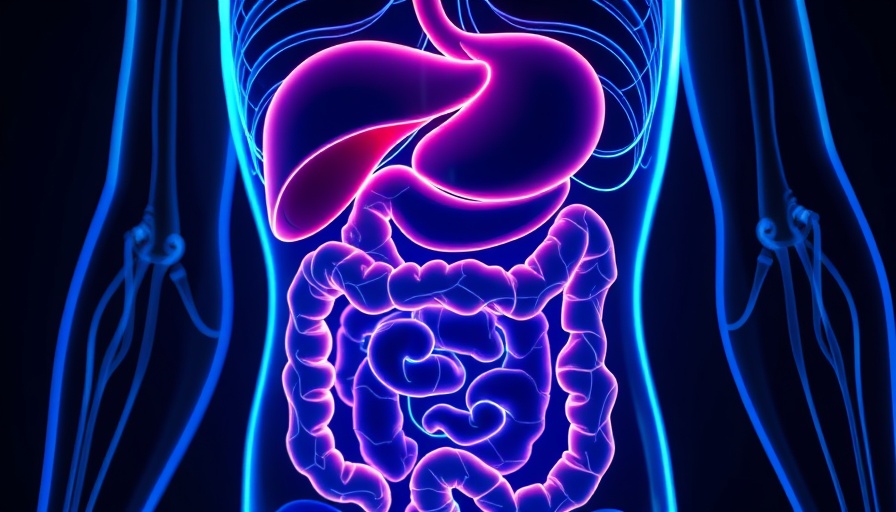
Revolutionizing Our Understanding of Diabetes and Liver Disease
Researchers at McMaster University and partner institutions have made a groundbreaking discovery that could change how we approach diabetes and liver disease. By identifying the lesser-known molecule D-lactate, a byproduct of gut bacteria, scientists are uncovering new therapeutic possibilities for treating metabolic disorders. This discovery emphasizes the crucial role of the gut microbiome in overall health and its connection to diseases such as type 2 diabetes and fatty liver disease.
The Role of D-Lactate: A Hidden Culprit
For many, the fight against diabetes has focused on factors such as diet, exercise, and insulin sensitivity. However, the recent findings shed light on a hidden factor that can significantly impact blood glucose levels and liver health: D-lactate. This molecule, produced by gut microbes, enters the bloodstream and prompts the liver to produce excessive amounts of sugar and fat, contributing to conditions like obesity and insulin resistance.
Unlike the more commonly known L-lactate, which muscles generate, D-lactate surfaces primarily from gut bacteria. Research has shown that its presence in the blood of obese individuals is much higher, indicating a direct link between gut health and metabolic diseases. This revelation encourages health-conscious individuals in Metro Atlanta to consider the importance of gut health in managing their overall well-being.
Innovative Solutions: The Gut Substrate Trap
To combat the effects of D-lactate, researchers have designed a revolutionary “gut substrate trap,” a biodegradable substance that binds to D-lactate in the gut and prevents its absorption. When tested in mice, this trap significantly lowered blood glucose levels, reduced insulin resistance, and decreased liver inflammation—all without altering the mice's diet or body weight.
This innovative approach not only enhances our understanding of metabolic diseases but also provides a fresh perspective on treating these conditions. Instead of addressing the symptoms by targeting insulin or glucose levels, researchers are intercepting the root cause: microbial fuel. Such insights empower readers, especially those living in health-conscious environments like Metro Atlanta, to consider holistic approaches that emphasize gut health.
A Legacy of Discovery: The Cori Cycle
The scientific foundation of this work ties back to the renowned Cori Cycle, a process discovered by Nobel Prize winners Carl and Gerty Cori in the 20th century. This cycle highlights how lactate produced by muscles is utilized by the liver, showcasing a metabolic dialogue crucial for energy production. The latest findings represent a new branch of this cycle involving gut bacteria—a testament to the ever-evolving understanding of human metabolism.
What This Means for You: Practical Insights
For those in Metro Atlanta, this new understanding of the relationship between gut bacteria and metabolic diseases offers actionable insights. Improving gut health through diet, probiotics, and lifestyle management can help reduce the levels of D-lactate and promote better metabolic function. Strategies might include:
- Incorporating fermented foods like yogurt and kimchi, which support beneficial gut bacteria.
- Regular physical activity to help manage weight and improve insulin sensitivity.
- Consulting with healthcare providers about microbiome testing and personalized nutrition plans.
The Future of Metabolic Disease Treatment
The potential of intercepting gut-derived D-lactate opens new avenues for treating conditions that affect millions. While more research is necessary, including trials in humans, the implications of this discovery are promising. It encourages proactive health measures and more adaptable treatment protocols focused on the individual’s overall health and lifestyle.
Summing It Up: A Call to Action for Health Conscious Adults
As we gain more understanding of our health, we need to prioritize comprehensive wellness approaches. For the residents of Metro Atlanta, this means recognizing the impact of our diet and gut health on conditions like diabetes and fatty liver disease. Incorporating preventive measures and staying informed about emerging research can empower you to take charge of your health. Embrace lifestyle changes today to pave the way for a healthier tomorrow.
 Add Row
Add Row  Add
Add 




Write A Comment